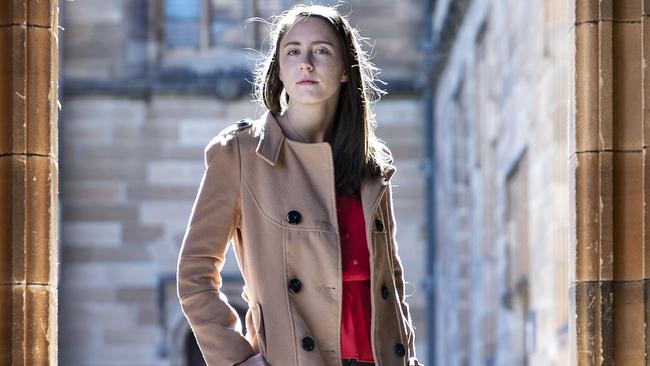The missing witnesses blind to child abduction
Bystanders can find it difficult to see, and remember, useful details about child abduction

No parent wants to believe it but a new study from the University of Sydney suggest bystanders can find it difficult to see, and remember, useful details about child abduction, even when it happens right in front of them.
Hayley Cullen, a PhD candidate and research assistant at the University of Sydney, conducted her research after becoming intrigued by the disappearance of three-year-old foster child William Tyrrell from the NSW mid-north coast town of Kendall on September 12, 2014.
No witnesses have come forward to say they saw or heard anything unusual on the day he disappeared.
Ms Cullen’s studies suggest there may be neighbours or bystanders who heard something, but if they didn’t think it was unusual at the time, they may never have formed a memory to tell police about it in the hours that followed.
William’s foster mother, who can’t be named, has told police she was sitting on the back deck with a cup of tea when William ran around the corner of the house, playing a game he called Daddy Tiger.
She heard him roar, and then he was gone, and has never been seen since.
The second episode of Nowhere Child , a podcast by The Australianon the disappearance of William, examining all aspects of his care status and the police investigation, is out at 3pm today. Ms Cullen was intrigued by how few witnesses had come forward.
“Could it be that, typically, we think children, if they are abducted, they’re going to kick and scream and make it known to people that something is wrong?” she said.
“But actually, in some kidnapping cases, that isn’t that stereotypical child being dragged screaming.
“So my research is looking at whether people interpret those events as crimes. And if they treat them as something that was just an ordinary event, what will they remember about it?”
In her research project, Ms Cullen showed two videos: one in which a woman dragged a struggling child away and one in which the child went willingly.
“We wanted to see whether that interpretation of the event affected what the witnesses were able to remember,” she said.
“And what we found was that if the initial interpretation was that nothing serious was happening, they weren’t able to remember much at all.”
Ms Cullen said it was entirely possible that there were witnesses to William’s abduction — people who had heard a car boot slam or the sound of skidding wheels — who had lost any useful memory of it.
“People think that if something really serious happens, that we’re immediately going to notice,” she said. “But what research shows is that the more unexpected something is, the more likely you would be to miss it because it doesn’t fit with what you’re doing. If you think it’s an ordinary thing, that it’s nothing to worry about, you’re very unlikely to form a memory of it that you can retrieve for the police,” Ms Cullen said.
That scenario occurred in Brisbane in December: Sterling Free, a young father of twins, stalked a girl in the toy aisle at Kmart. He said to her: come with me. And she did. He took her to nearby bushland where he sexually assaulted her. He pleaded guilty last week and is now awaiting sentencing.
Bystanders told police they had not seen anything unusual. Bravehearts founder Hetty Johnston told The Australian: “Children are trusting, they are curious and they are taught to listen to adults. Predators know that.”



